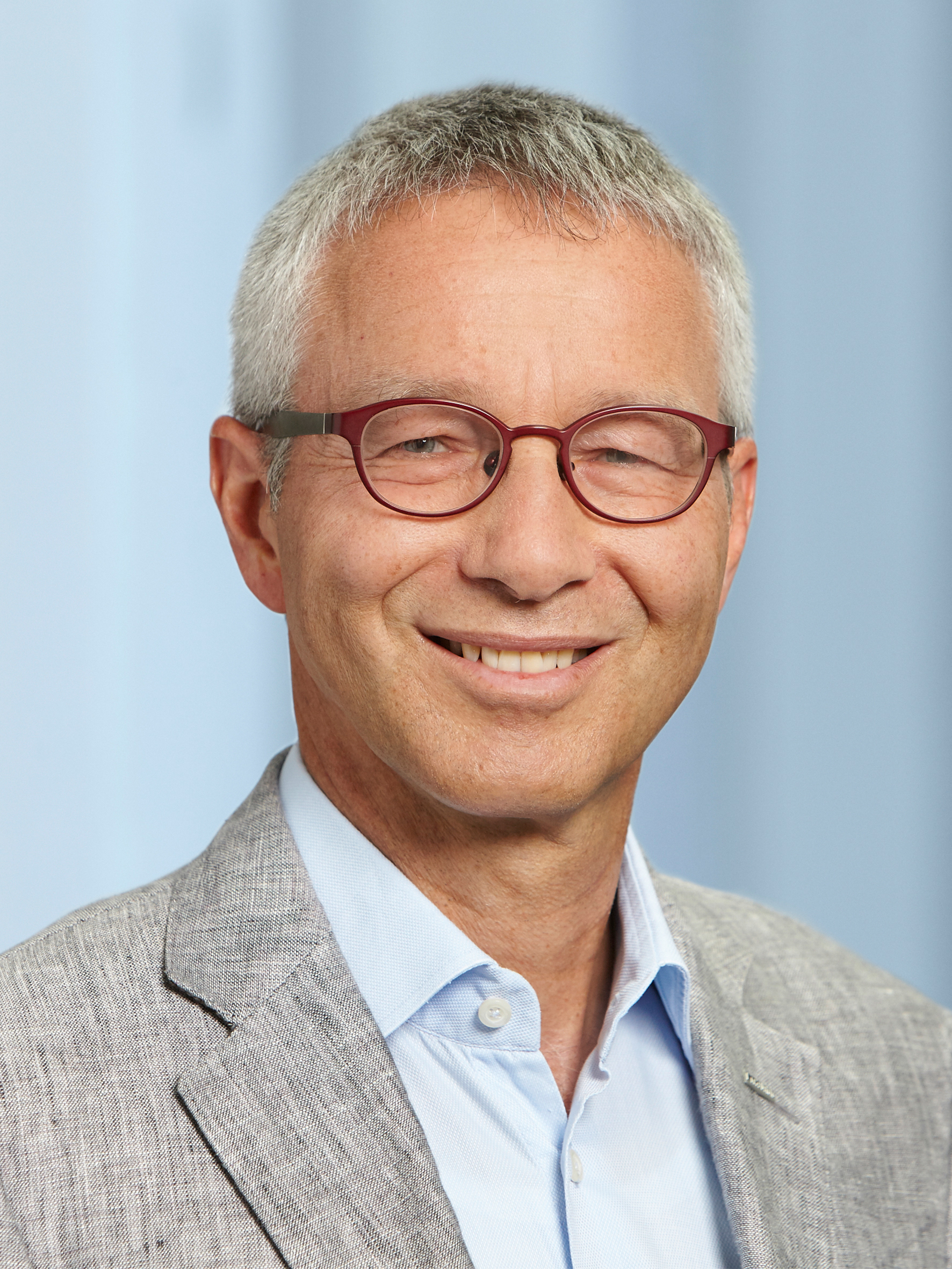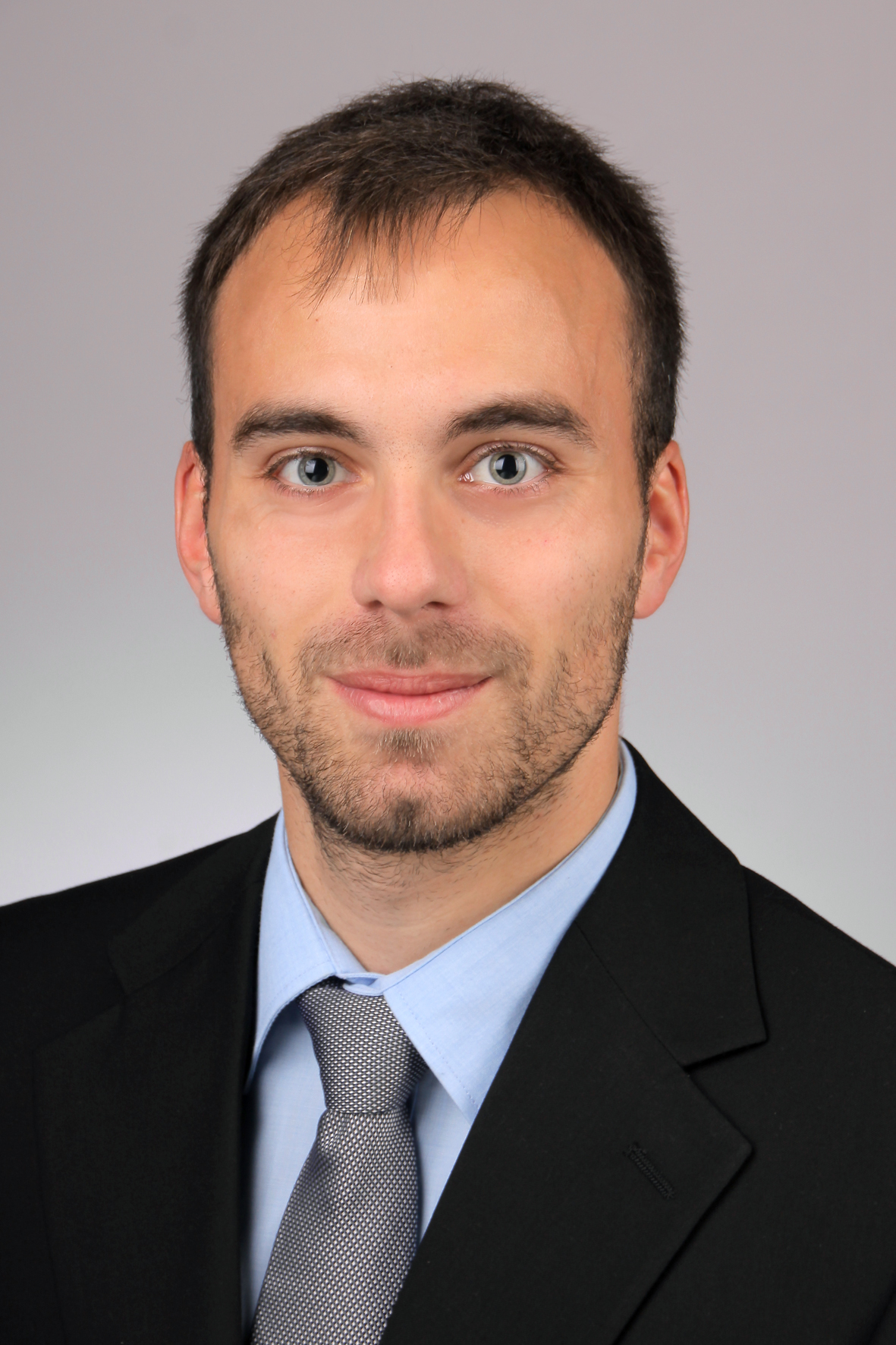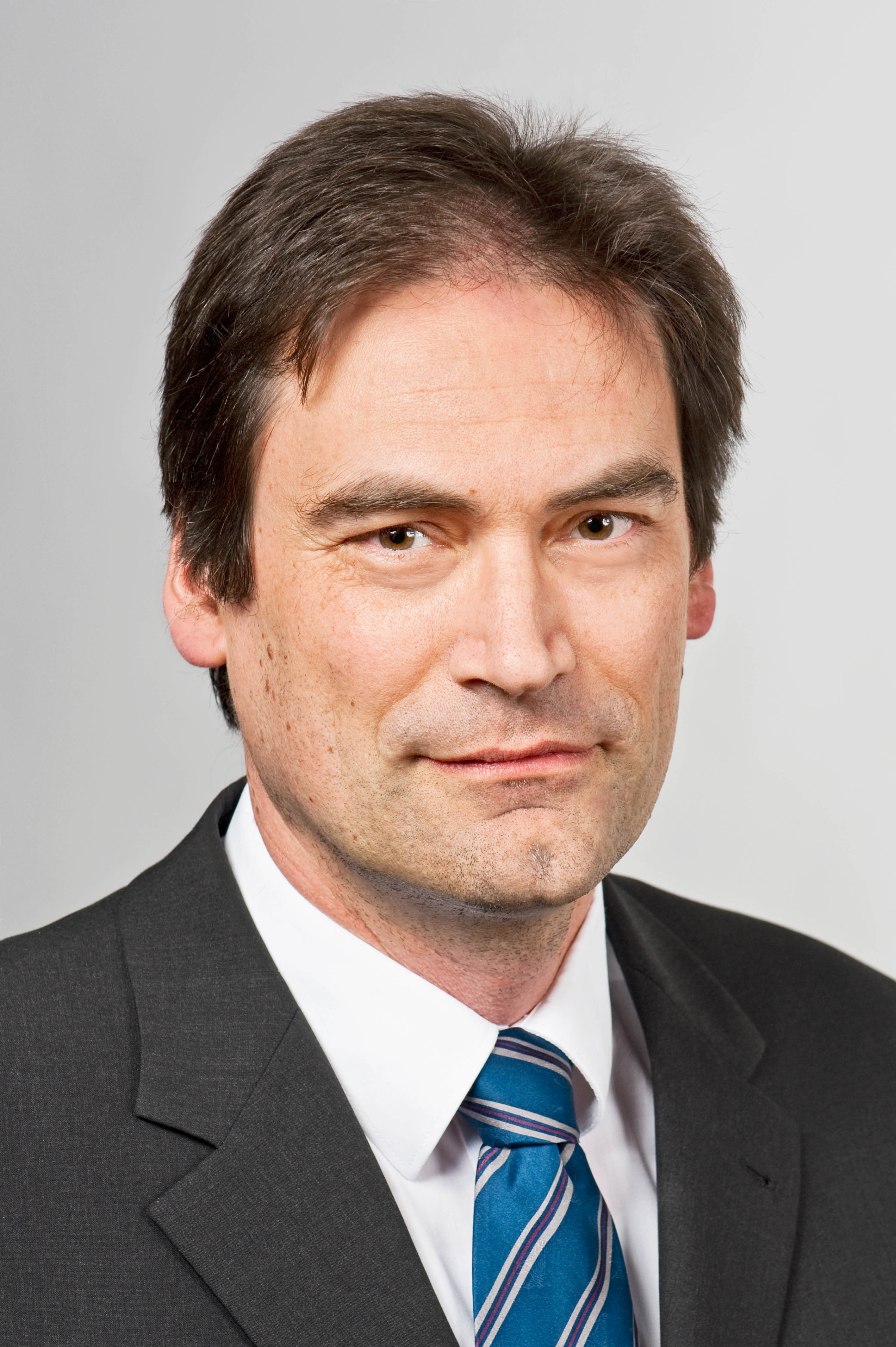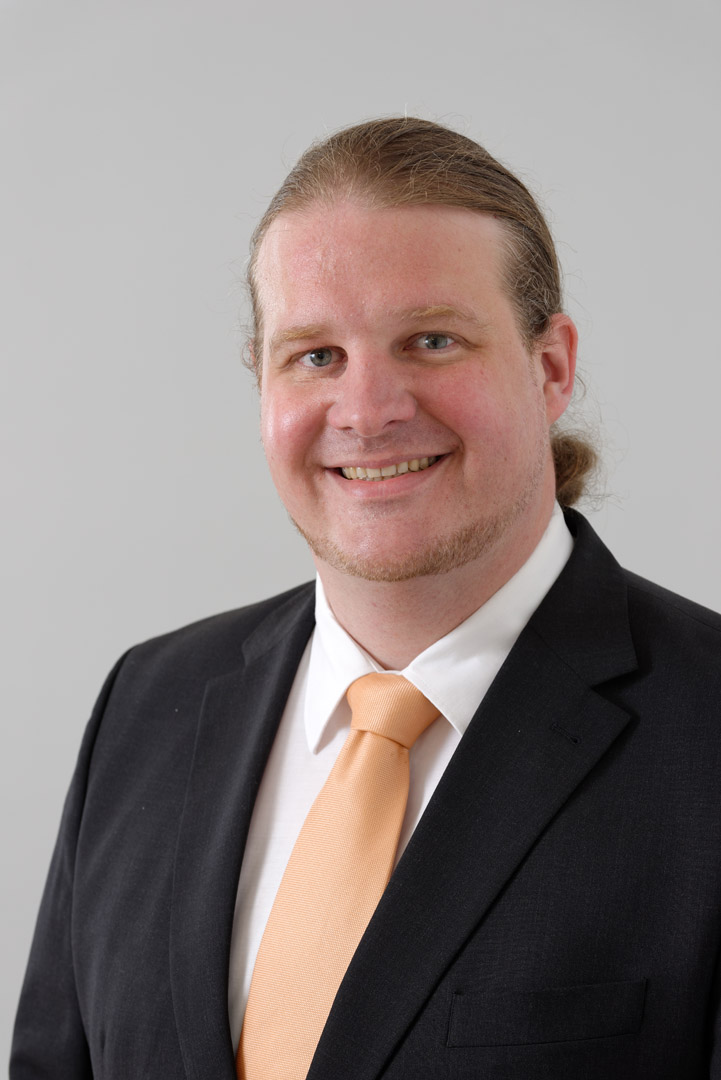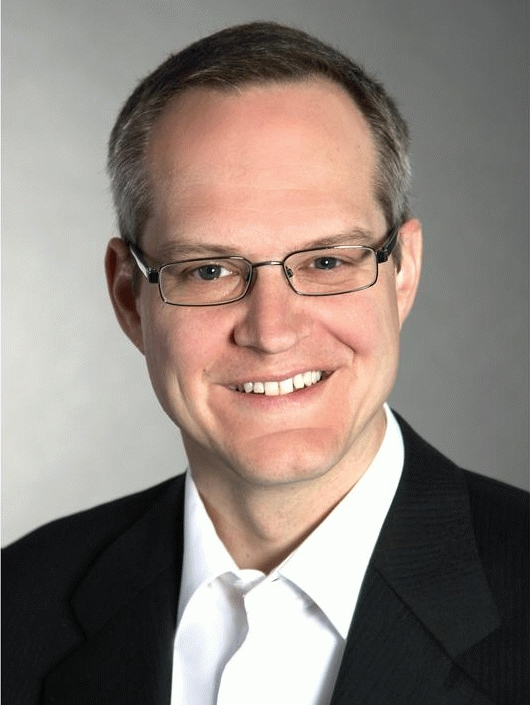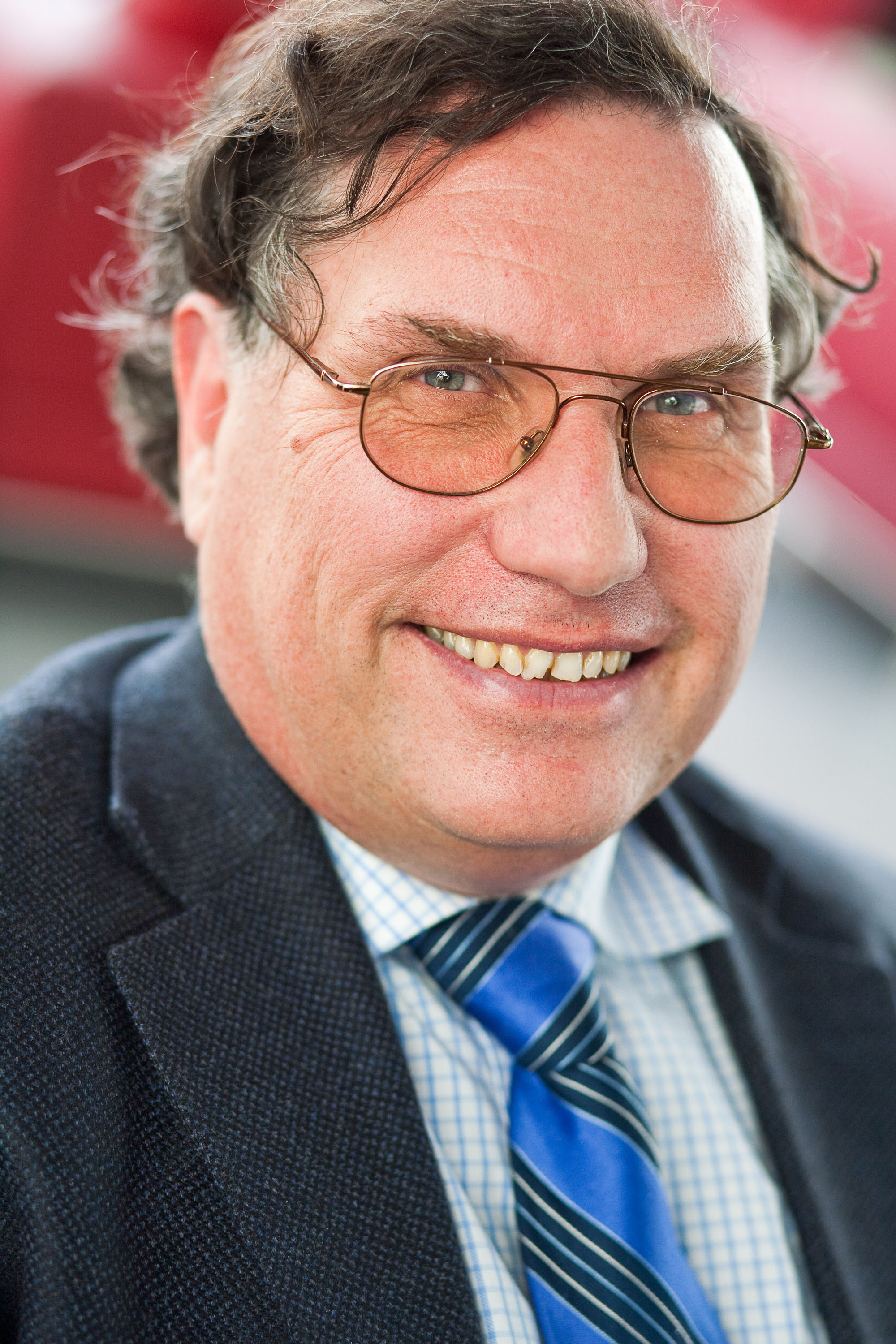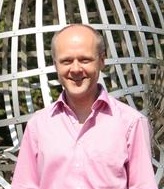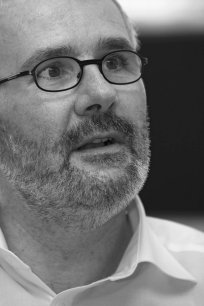Invited and confirmed speaker
-
Christian Füllner (Homepage)
Institut for Operations Research, Karlsruher Institut of Technology, Germany
-
Prof. Dr. Thomas Hamacher (Homepage)
Renewable and Sustainable Energy Systems, Technical University of Munich, Germany
-
Dr. Benedikt Hanke (Homepage)
Energy Systems Technology, Institute of Networked Energy Systems, Germany
-
Prof. Dr. Daniel Kuhn (Homepage)
Risk Analytics and Optimization, Ecole polytechnique federale de Lausanne, Switzerland
-
Prof. Dr. Georg Pflug (Homepage)
Stochastic Optimization, Statistics & Risk Management, University of Vienna, Austria
-
Prof. Dr. Alois Pichler (Homepage)
Financial Mathematics, Chemnitz University of Technology, Germany
-
Prof. Dr. Rüdiger Schultz (Homepage)
Optimization and discrete mathematics, University of Duisburg-Essen, Germany
-
Prof. Dr. Anita Schöbel (Homepage)
Optimization Group, TU Kaiserslautern and Head of Institute, Fraunhofer Institute for Industrial Mathematics, Germany
Prof. Dr. Joachim M. Buhmann |
|
|
Title Robust algorithmics: an information theoretic approach to algorithm validation
|
Abstract
The ALGORITHM is the idiom of modern science, as Bernard Chazelle phrazed it. In this talk, I like to forward the bold claim that robust algorithmics lays the foundation of data science. The challenge to regularize risk functionals against random fluctuations suggests to borrow concepts from statistics for optimization in data science. Such algorithms have to reliably map data spaces to hypothesis classes. Beside running time and memory consumption, such algorithms should be characterized by their sensitivity to the signal in the input and their robustness to input fluctuations. The achievable precision of an algorithm, i.e., the attainable resolution in output space, is determined by its capability to extract predictive information. I will advocate an information theoretic framework for algorithm analysis where an algorithm is characterized as a computational evolution of a posterior distribution on the output space. The method allows us to investigate complex data analysis pipelines as they occur in computational neuroscience and neurology as well as in molecular biology. I will demonstrate this design concept for algorithm validation with a statistical analysis of diffusion tensor imaging data. A theoretical result for sparse minimum bisection yields statistical hints why random combinatorial optimization problems are hard to solve.
Curriculum vitae
Joachim M. Buhmann is a Professor for Computer Science (Information Science & Engineering) at ETH Zurich. He studied physics at TU-Munich and performed research at USC and LLNL in California (1988-‘92). Until 2003 he was a Professor for Applied Computer Science at the University of Bonn. His teaching and research includes Machine Learning in theory and applications, e.g. in the life sciences. He is a member of the Swiss Academy of Science (SATW), a honorary member of the German Pattern Recognition Society (DAGM) and a research council member of the Swiss National Science Foundation. |
Christian Füllner |
|
|
Title Cut-sharing in stochastic dual dynamic programming
|
Abstract
Stochastic dual dynamic programming (SDDP) is a widely used method for solving large-scale multi-stage stochastic linear programming problems by introducing scenario sampling to the nested Benders decomposition method. However, in its classical form SDDP relies heavily on the assumption of interstage independent random vectors so that Benders cuts can be shared among different scenarios at the same stage. In many practical applications this assumption might not be satisfied. Therefore, recently cut sharing has been generalized to linear or at least convex interstage dependent uncertainty in the right-hand side of the problem. We build upon this work and further generalize the cut-sharing methodology to a broader class of nonlinear uncertainty models. A real-life power system example is examined to illustrate the effectiveness of the proposed techniques.
Curriculum vitae
Christian Füllner studied Industrial Engineering at the Karlsruhe Institute of Technology (KIT) with a focus on mathematical optimization and energy economics. Since 2017 he is a PhD student and research assistant at the Chair of Stochastic Optimization at KIT. His research interests are multistage stochastic programming and global optimization. In particular, he works on developing and enhancing solution techniques for stochastic and deterministic optimization problems which incorporate non-convexities, which are caused by non-convex functions, nonlinear uncertainty models or integer variables. Applications of such problems can be found in power systems modeling and optimization, for instance.
|
Prof. Dr. Thomas Hamacher |
|
|
Title Modelling decentral power systems: a methodological comparison joint work with Candas Sonar, Kai Zhang
|
Abstract The energy system is in a major transformation process. Driving forces in Germany are the wish to reduce greenhouse gas emissions and to phase out nuclear power by 2022. A bundle of policy instruments – not always consistent – promotes the transformation process. The application of decentral renewable energies, the shift to electricity as central final energy carrier, new market structures, social challenges and lack of acceptance are key determinants in this process. Structures are more fragmented and simple optimisation methods unable to model the technologies and decisions properly. A mapping of the old hierarchical structure to optimisation problems was comparable easy. The talk will discuss two different approaches to model the new energy reality:
None of the proposed solutions is mature yet and both need refinements before they can be widely applied. However, a new paradigm of energy modelling is necessary to cover the new energy reality.
Curriculum vitae After studying physics in Bonn, Aachen and Columbia University (New York), Thomas Hamacher received a doctorate from the University of Hamburg for his work on baryonic beta decay. Professor Hamacher has been with the Max Planck Institute for Plasma Physics since 1996, most recently as head of the Energy and System Studies Group. From 2010 to 2013 he served as acting head of the Chair of Energy Management and Application Technology. In 2013, he was appointed Full Professor for Renewable and Sustainable Energy Systems. Furthermore, he is Director of the Munich School of Engineering. Prof. Hamacher is a member of the Environmental Science Centre (WZU) of the University of Augsburg.His research is focused around energy and systems analysis, focusing on urban energy systems, the integration of renewable energy into the power grid. Here especially the possibilities by using sector coupling and innovative nuclear systems (including fusion). Other focuses of his work are the methods and fundamentals of energy models and new optimization methods. |
Dr. Benedikt Hanke |
|
|
Title Uncertainty on All Levels of Energy Systems
|
Abstract For the operation and planning of energy systems on all scales – from transnational down to local districts and properties – forecasts and models are day-to-day tools of operators, engineers and research. The DLR-Institute of Networked Energy Systems is working on optimizing tools and methods for a better understanding of the design and operation of energy systems dominated by renewable energies. In the optimizing energy system model REMix – designed to evaluate the future energy supply on national and continental levels – uncertainty has been considered with regard to power generation, demand and the availability of thermal power plants. Future applications include the uncertainty of technology and cost development when modelling system transformation pathways. In the agent-based power market simulation model AMIRIS, uncertainty plays a central role with respect to the behaviour of other actors on the market. Energy systems dominated by renewables are based to a large extent on weather-dependent energy resources and technologies. Especially wind and photovoltaic require skilful short-term forecasts to balance consumption and generation. As weather forecasts cannot be perfect, information on the expected uncertainty of the forecast is essential for good decisions. In the ProPower project a modelling platform is built to test the skill of probabilistic feed-in forecast in a European power system using stochastic dispatch optimization. Including long-term storages precluded to compute each day separately in parallel tasks. Hence, computing times increase drastically and require in the future new formulation of the optimization problem. Current work focuses on assessing the benefit of ensemble forecast over deterministic forecasts and the calibration of ensemble forecasts to make them more reliable. The integration of electric mobility, power-to-heat and photovoltaic generation into urban infrastructures puts extra strain onto the electrical grids. To reduce the demand for grid strengthening and expansion, management systems are introduced to manage demand and generation by utilizing the demand flexibility of sector coupling applications. During the planning process of the energy system of future districts and industrial parks one challenge is the long return on invest time of renewables. To create a solid investment decision, uncertainties in development of resource availability (sun, wind), demand (energy efficiency, production, population density) and prices are met by a Monte Carlo approach, to select a robust system design over a fragile one. The operation of local energy cells requires more and more fully automated management decisions based on predictions. For the integration of renewables and electro mobility into a multi-tenant commercial property, low cost photovoltaic prediction and load prediction have to be combined to create a charging plan and a charging limit. Ongoing research is looking at good strategies to analyse the uncertainty chains in a way that customer satisfaction can be guaranteed while maximising the profit for the system owner.
Curriculum vitae Benedikt Hanke studied microsystem technology at the University of Freiburg. Afterwards he conducted his Phd work in the field of polymer-ceramic composites with optimized dielectric properties at the Karlsruhe Institute of Technology (KIT). In 2010 he moved to the field of photovoltaics and renewable energy systems, working at the NEXT ENERGY – EWE-Forschungszentrum für Energietechnologie, which has since been transformed into the DLR-Institute of Networked Energy Systems in 2017. His research interests are the energy management of local grids in houses and districts as well as the integration of renewable energies with sector coupling technologies (heat and mobility). |
Dr. He Huang |
|
|
Title Renewables PPA marketing as a multi-stage optimisation problem under uncertainty - a practitioners’ view
|
Abstract
Under a typical power purchasing agreement (PPA), a renewables producer transfers his combined volume and price risk to a direct marketer by selling the ex-ante unknown production volume at an indexed price (typically the Day Ahead price). The direct marketer hedges a forecast of the actual production. Any forecast-to-actual deviation is exposed to price risk. The direct marketer faces a multi-stage optimisation problem under uncertainty. The objective function is to minimise marketing costs, defined as power purchasing price paid to the producer minus revenue on the electricity markets, with the first stage being the initial hedge on the day ahead electricity market, the second and subsequent stages being hedge adjustments on the intraday market which lead to a final payoff in the imbalance market. Uncertainty results from stochastic distributions of price and volume. The optimisation is constrained by risk tolerance, market liquidity, etc. In this presentation, I will present an overview of this optimisation problem from a direct marketer’s perspective. Certain aspects are highlighted in detail, e.g. challenges arising from skewed forecast distributions, illiquid intraday markets, etc. The goal is to stimulate discussion and show opportunities for practically relevant research in this area.
Curriculum vitae He Huang is an energy market professional with a focus on European wholesale electricity markets. He has worked in the areas of portfolio strategy, quantitative analysis, hedging, and renewables marketing, currently as Team Lead Optimisation for Vattenfall Energy Trading. He holds a doctoral degree in finance from University of Cologne. |
Prof. Dr. Daniel Kuhn |
|
|
Title Wasserstein Distributionally Robust Optimization: Theory and Applications in Machine Learning
|
Abstract Many decision problems in science, engineering and economics are affected by uncertain parameters whose distribution is only indirectly observable through samples. The goal of data-driven decision-making is to learn a decision from finitely many training samples that will perform well on unseen test samples. This learning task is difficult even if all training and test samples are drawn from the same distribution - especially if the dimension of the uncertainty is large relative to the training sample size. Wasserstein distributionally robust optimization seeks data-driven decisions that perform well under the most adverse distribution within a certain Wasserstein distance from a nominal distribution constructed from the training samples. In this talk we will see that this approach has many conceptual and computational benefits. Most prominently, the optimal decisions can often be computed by solving tractable convex optimization problems, and they enjoy rigorous out-of-sample and asymptotic consistency guarantees. We will also see that Wasserstein distributionally robust optimization has interesting ramifications for statistical learning and motivates new approaches for fundamental learning tasks such as classification, regression, maximum likelihood estimation or minimum mean square error estimation, among others.
Curriculum vitae Daniel Kuhn is Professor of Operations Research at the College of Management of Technology at EPFL, where he holds the Chair of Risk Analytics and Optimization (RAO). His current research interests are focused on data-driven optimization, the development of efficient computational methods for the solution of stochastic and robust optimization problems and the design of approximation schemes that ensure their computational tractability. This work is primarily application-driven, the main application areas being engineered systems, machine learning, business analytics and finance. Before joining EPFL, Daniel Kuhn was a faculty member in the Department of Computing at Imperial College London (2007-2013) and a postdoctoral research associate in the Department of Management Science and Engineering at Stanford University (2005-2006). He holds a PhD degree in Economics from University of St. Gallen and an MSc degree in Theoretical Physics from ETH Zurich. He serves as the area editor for continuous optimization for Operations Research and as an associate editor for several other journals including Management Science, Mathematical Programming, Mathematics of Operations Research and Operations Research Letters. He also chairs the steering committee of the Stochastic Programming Society. |
|
|
|
Prof. Dr. Georg Pflug |
|
|
Title Model ambiguity in multistage decision making under uncertainty
|
Abstract Many decision models in finance, energy, insurance, business etc. contain models of uncertainty. In some cases, these models are found ad hoc, in other cases they are based on same statistical analysis of available data. However it is often ignored that the estmates come always together with some estimation (model) error. The incomplete information about the correct model is called "model ambiguity". We review some recent results about how (nonparametric) model errors can be incorporated into the decision process. To this end, we introduce the ambiguity set as the set of models compatible with our observations and extend the basic minimzation problem to a minimax (saddle point) problem. In this talk we consider a dual formulation for the problem and demonstrate examples from various fileds, such as portfolio optimization (ambiguity of the whole model or only of the compula), pricing of contingent claims, multistage hydro reservoir management, valuation of a thermal power plant and last but not least designing optimal insurance contracts. In all these cases, the correct price or value contains an additional component, which is based on the degree of model uncertainty (the ambiguity premium). This premium can be positive for ask-prices, but can also be negative for bid-prices or valuations.
Curriculum vitae
Born in 1951, Georg Pflug studied Law, Mathematics and Statistics at the University of Vienna. He was Professor at the University of Giessen, Germany and is now Full Professor at the University of Vienna and Head of the Computational Risk Management Group. He is also part time research scholar at the International Institute of Applied Systems Analysis, Laxenburg, Austria. Georg Pflug's interests include Stochastic Modeling, Stochastic Optimization, Measuring and Managing of Risks and Applications in Finance (including Pension Funds), Insurance, Energy and Shape Design. Georg Pflug held visiting positions University of Bayreuth, Michigan State University, University of California at Davis, Université de Rennes, Technion Haifa and Princeton University. He is currently Associate Editor of 10 international journals and author of 4 books, editor of 6 books, and more than 100 publications in refereed journals.
|
|
|
|
Prof. Dr. Alois Pichler |
|
|
Title Dynamic equations in stochastic optimization
|
Abstract The dynamic programming principle is well investigated from mathematical perspective. The Hamiltonian drives the evolution equations, solutions are most often characterized by viscosity solutions. Its stochastic version typically involves the expected value. This talk intends to extend the classical setting by incorporating risk in the objective, a risk averse assessment replaces the risk neutral expectation. Parametrizing risk aversion properly in time allows for a non-degenerate and risk averse mathematical setup. The corresponding evolution equation has a modified Hamiltonian, with a new term pointing in the direction of risk. Explicit solutions are available for economic problems as Merton's fraction, which allows a nice interpretation of risk in addition.
Curriculum vitae Alois Pichler holds a position with focus in financial mathematics at the technical university of Chemnitz. He is an accredited actuary and graduated in Statistics in Vienna with Prof. Pflug. Before that he was working in the financial industry. His scientific interests are in risk and optimization under uncertainty. Applications of stochastic optimization can often be found in economics, they include managerial problems in finance and energy. His further interest is in insurance, which includes statistics, risk measures and risk management. |
|
|
|
Prof. Dr. Rüdiger Schultz |
|
|
Title Building Stochastic Programming Theory and Algorithms – Powered by Algebra
|
Abstract Thanks to linear programming duality, the classical linear stochastic‘ program with recourse, as introduced individually by Beale and Dantzig in 1955, obeys convexity and duality properties facilitating the development of theory and the design of algorithms considerably. Practical needs in operations research and elsewhere quickly drive the modeling beyond the convex case. For instance, 0-1 decisions and related integer variables to model switching and indivisibility or nonlinearites of physical origin such as squared-differences of square expressions marking drop of potential related to flow along the pipes. The objective function of a generic two-stage stochastic program is given by an integral with respect to some probability measure over an integrand typically stemming from the optimal value of a subordinate second-stage optimization problem and depending on a parameter acting as nonanticipative first-stage (decision) variable. In the talk extensions of the classical model concerning all key ingredients, namely the measure, the integrand, the second-stage optimization problem, and the nonanticipative first-stage variable will be put into perspective. Since convexity is lost instantly when extending the model, identification of proper mathematical alternatives becomes crucial. Traditionally, analytical techniques beyond differentiability and convexity then come to the fore. In the talk, some first successful approaches using algebraically motivated structures and methods will be addressed.
Curriculum vitae Rüdiger Schultz is a Full Professor for Discrete Mathematics and Optimization in the Department of Mathematics at the University of Duisburg-Essen, Germany, since 1998. His doctoral and habilitation degrees in Mathematics he has received from the Humboldt University Berlin in 1985 and 1995. Dr. Schultz’ primary research interests are in optimization under uncertainty, discrete optimization, and in industrial applications of mathematical optimization. His research accomplishments include seminal results on structure, stability, and algorithmic treatment of stochastic programs, in particular of models involving integer variables, risk aversion, and PDE constraints. He has made contributions to real-life applications of mathematical optimization in the power, natural gas, and chemical processes industries. He has co-authored more than 100 scientific papers. Currently, Dr. Schultz is Editor-in-Chief of the journal “Computational Management Science” and Area Editor Linear and Stochastic Optimization of “Operations Research Letters”. He is serving as a member of the editorial boards of four further research journals in mathematics. |
|
|
|
Prof. Dr. Anita Schöbel |
|
|
Title Multiobjective robust optimization 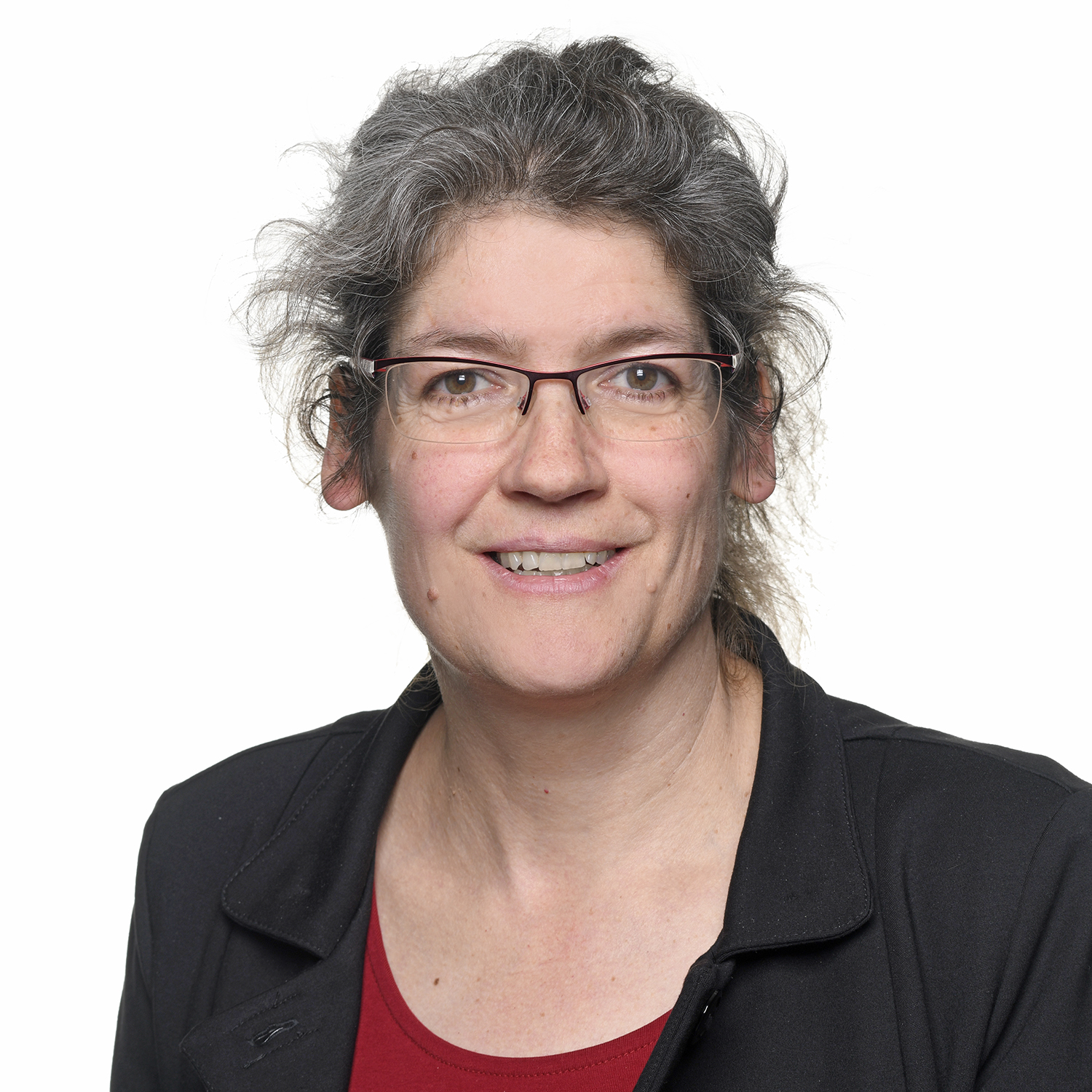
|
Abstract Most real-world optimization problems contain parameters which are not known at the time a decision is to be made. In robust optimization one specifies the uncertainty in a scenario set and tries to hedge against the worst case. Classical robust optimization aims at finding a solution which is best in the worst-case, see [1] for a detailed analysis. However, the world is not only uncertain, but also multi-criteria. The question to be tackled in the talk hence asks: How to handle uncertain optimization problems in which more than one objective function is to be considered? This yields a robust multiobjective optimization problem, a class of problems rather recently introduced and studied, see [2]. Some ideas on how to visualize robust Pareto solutions will be shown. The examples allow to discuss which solutions should be called "robust Pareto" or "robust efficient". Different concepts on how to define a robust Pareto solution will be shown next: The relation between these different classes of robustness concepts is considered. We will also show first approaches on how to compute robust efficient solutions. [1] A. Ben-Tal and L. El Ghaoui and A. Nemirovski, Robust Optimization, Princeton University Press, 2009 [2] J. Ide und A. Schöbel. Robustness for uncertain multi-objective optimization: a survey and analysis of different concepts, OR Spectrum 38:1, 235-271, 2016 [3] M. Botte and A. Schöbel. Dominance for Multi-Objective Robust Optimization Concepts, European Journal of Operational Research, to appear
Curriculum vitae Anita Schöbel received her PhD in mathematics in 1998 and her habilitation in mathematics in 2003. From 2004 - 2018 she has been professor for optimization at the Georg-August University Göttingen. 2016/17 she has been head of the Simulation Center Clausthal Göttingen. Since January 2019, Anita Schöbel is professor for Applied Mathematics at the TechnicalUniversity of Kaiserslautern and director of the Fraunhofer Institute of Industrial Mathematics ITWM. The ITWM has about 250 staff organized in 11 departments all dealing with research and industry projects in applied mathematics. Anita is currently president of the German Operations Research Society (GOR). She has been involved in many industrial and research projects, among them the In her research interests, Anita focuses on discrete optimization in public transport, multi-objective robust optimization, and several topics related to facility location. |

